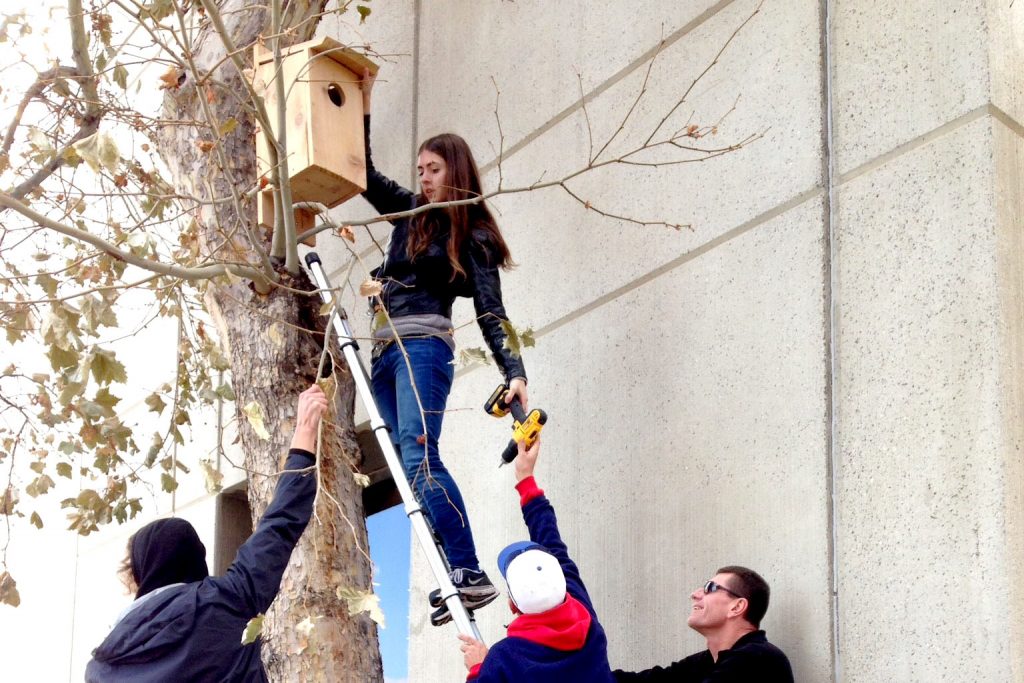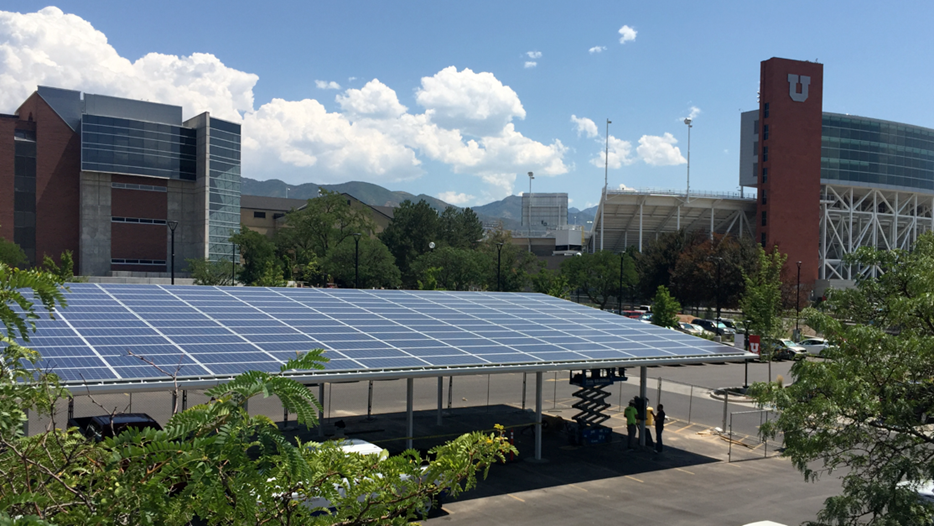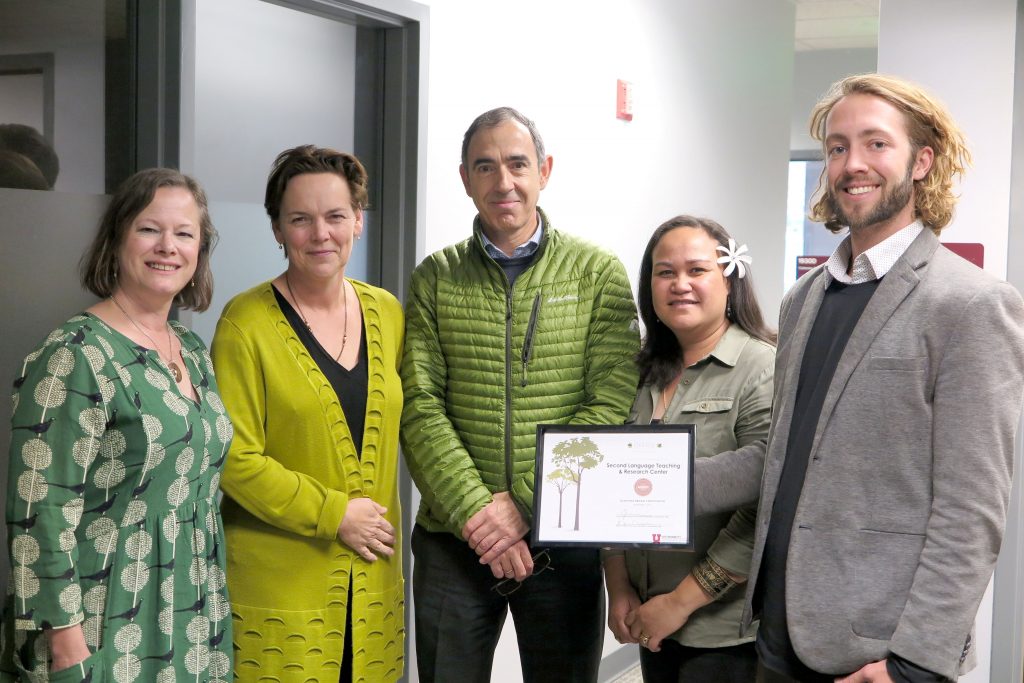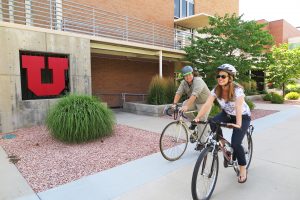Engagement
The Sustainability Office engages our campus and community through programming that inspires innovation, expands knowledge and understanding, and creates action toward a healthy future.
Get involved
The Sustainability Office believes that the University of Utah is a living laboratory. We offer opportunities for students, staff, faculty, and the community to participate in sustainability efforts. Get your hands in the ground with the Edible Campus Gardens or define your own legacy with a Sustainable Campus Initiative Fund (SCIF) project.
The Sustainability Office organizes and advises student groups and programs related to sustainable food systems. We support students who want to participate in their local food system and evaluate food justice, and we provide students with resources to make conscious choices about food.
The Sustainable Campus Initiative Fund, or SCIF, is the University of Utah’s green grant program. Students, faculty, and staff from all disciplines and departments are invited to propose projects that enhance the sustainability of our campus and community. SCIF encourages ideas that operate at the crossroads of academics and operations. The program is funded through student fees.
The Sustainable Energy Fund (SEF) is a revolving loan fund dedicated to large-scale sustainability projects at the University of Utah. The SEF is transforming the campus through energy conservation, waste reduction, operation efficiency and behavior change projects. The initial costs of these projects—such as solar panels and high efficiency water heaters—can be a barrier, even if the project will save money over its lifetime. Students created the SEF to fill this gap and provide upfront costs to make these projects a reality.
We consume a variety of resources in our work environment. To reduce that consumption, we can integrate sustainability principles into day-to-day activities departments and offices in campus. Our Green Office program provides tools, support, and guidance to help make your campus work spaces more sustainable.
Active transportation is a popular practice as almost 30% of students take to the roads on foot and on wheels to get to class and other destinations. Active transportation helps to meet University climate goals in reducing vehicle emissions that harm our air quality, while encouraging commuters to utilize alternatives to driving alone. People who actively commute improve their personal health and reduce traffic congestion on surrounding roadways.









